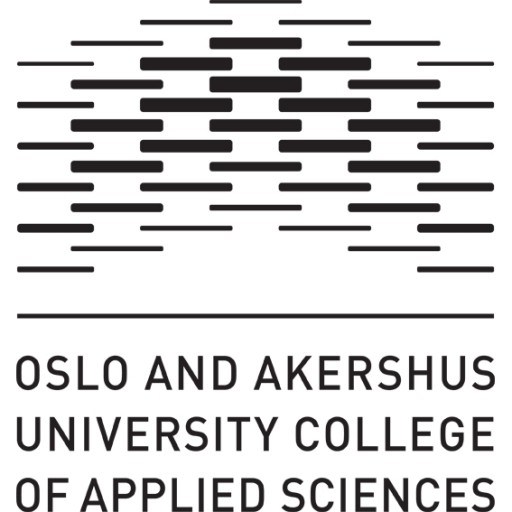Photos of university / #unioslo
GLOBED aims to set new standards as a master's degree in the field of globalisation, education and international development. You study in Barcelona, Oslo or Amsterdam and Malta. You will do an internship as well as a fieldwork, and you will be part of an interdisciplinary approach with expertise from all regions of the world.
The Master's Programme in Educational Policies for Global Development at the University of Oslo offers an in-depth exploration of the complex relationship between education and sustainable development across diverse global contexts. This interdisciplinary program is designed to equip students with critical analytical skills, theoretical knowledge, and practical tools necessary to confront contemporary challenges in education policy-making and implementation worldwide. Throughout the programme, students will examine key issues such as equitable access to quality education, the role of education in advancing social justice, and the influence of global governance and international organizations on national education systems. The curriculum combines perspectives from education theory, development studies, political science, and economics to foster a comprehensive understanding of how education policies shape societal progress.
Students will engage with a variety of case studies from different regions, facilitating a nuanced appreciation of local, national, and global factors influencing educational development. The programme emphasizes research-based learning, encouraging students to critically evaluate existing policies and propose innovative solutions tailored to diverse contexts. Coursework includes modules on the political economy of education, human rights and education, gender and education, and the impact of globalization on education systems. Additionally, students will learn to employ qualitative and quantitative research methods, equipping them with the skills to conduct independent investigations and contribute meaningfully to policy debates.
The programme also offers practical experiences through internships, workshops, and collaboration with international organizations, preparing students for careers in policymaking, research, or advocacy in the fields of education and sustainable development. Graduates will be well-positioned to work with governments, NGOs, and international agencies to promote inclusive, equitable, and high-quality education systems worldwide. By the conclusion of the programme, students will have developed a critical understanding of how educational policies can foster sustainable development, social justice, and global citizenship, enabling them to make impactful contributions in their professional lives. The Master's Programme in Educational Policies for Global Development reflects the University of Oslo's commitment to fostering global leaders who are dedicated to improving education systems in pursuit of a more just and sustainable future for all.
Program requirements for the Master's Degree in Educational Policies for Global Development at the University of Oslo include a combination of coursework, a research practical, and a thesis. Applicants must hold a Bachelor's degree or equivalent in education, social sciences, or related fields. Proficiency in English is required, demonstrated by IELTS or TOEFL scores meeting the University's standards. The program emphasizes interdisciplinary understanding, so prior experience or interest in global development, education policy, or related topics is advantageous. Students are expected to complete core courses in education policy analysis, research methods, globalization and education, and development theories. Elective courses allow specialization in areas such as human rights education, educational planning, or gender and development. The curriculum combines lectures, seminars, and workshops, promoting active participation and critical thinking. A significant practical component involves engaging with ongoing research or policy projects, offering students real-world experience. The research practical typically takes place during the second semester, giving students the opportunity to apply theoretical knowledge to practical issues. The thesis is a substantial research project that requires independent investigation under supervision, culminating in a written report of approximately 20,000 to 30,000 words. During the program, students are expected to demonstrate analytical skills, policy analysis expertise, and the ability to conduct independent research. Language of instruction is English, and students must participate in seminars and workshops as part of their coursework requirements. Overall, the program aims to prepare graduates for careers in policy analysis, development cooperation, international organizations, NGOs, or academia, equipping them with the necessary skills to influence and implement educational policies in a global context.
The Educational Policies for Global Development master's programme at the University of Oslo offers a range of financing options to support students throughout their studies. The primary funding sources include scholarships, grants, and student loans provided by both Norwegian authorities and external organizations. Prospective students are encouraged to explore scholarships offered by the university itself, such as the University of Oslo Scholarships, which recognize academic excellence and commitment to global development issues. Additionally, the Swedish Institute Scholarships for Global Professionals (SISGP) and other international scholarship programs are available for qualified applicants from specific countries. Students can also seek funding through national student loan schemes, such as the Norwegian State Educational Loan Fund (Lånekassen), which provides financial support to Norwegian and Nordic students. These loans often cover tuition fees, living costs, and study-related expenses, making higher education accessible to a diverse student body.
Furthermore, many students secure external funding through governmental and non-governmental organizations dedicated to international development and education. For example, students from developing countries may qualify for aid and scholarships from international agencies such as the United Nations, World Bank, or individual country programs aimed at promoting higher education abroad. The programme's location in Norway also affords students access to part-time work opportunities within the country, where international students are permitted to work alongside their studies up to a certain number of hours per week, providing additional financial resources.
The university has dedicated financial aid offices and advisory services to assist students in identifying and applying for suitable funding options. Students are advised to consult the official university website and contact the international office early to understand the eligibility criteria, application procedures, and deadlines for different funding sources. Overall, the combination of scholarships, loans, external funding, and employment opportunities makes the Educational Policies for Global Development programme financially attainable for a wide range of students committed to advancing global development initiatives.
Educational Policies for Global Development at the University of Oslo is a comprehensive interdisciplinary master's program designed to equip students with a deep understanding of the various challenges and opportunities associated with sustainable development and global justice. The program emphasizes critical analysis of development policies, economic strategies, social justice, environmental sustainability, and international cooperation. It aims to prepare students for roles in policy-making, research, and development work at international, national, and local levels. Throughout the curriculum, students engage with both theoretical frameworks and practical approaches, incorporating case studies from different regions around the world.
The program typically covers core topics such as development economics, human rights, environmental policies, global governance, and social inclusion. It encourages a multi-faceted perspective by integrating insights from political science, economics, sociology, and environmental studies. Students have opportunities to participate in fieldwork, internships, and collaborative projects with NGOs, government agencies, and international organizations. The program promotes critical thinking, analytical skills, and intercultural competence, empowering graduates to contribute effectively to sustainable development initiatives.
Students can expect to participate in seminars, workshops, and conferences designed to foster dialogue among academics, policymakers, and practitioners. The university's strong international focus allows students to develop an understanding of global development issues from diverse cultural contexts, preparing them for careers in international development agencies, research institutes, non-governmental organizations, and government bodies. The program also encourages engagement with current debates on climate change, migration, inequality, and technological innovation, reflecting the dynamic and interconnected nature of 21st-century global development challenges.
The degree typically takes two years to complete and is delivered through a combination of lectures, group work, individual assignments, and thesis research. Graduates will have gained competences in policy analysis, project management, and effective communication, alongside a solid theoretical foundation. With a focus on evidence-based approaches to development problems, the program prepares students to formulate, analyze, and evaluate policies aimed at fostering inclusive and sustainable growth worldwide. Active collaboration with faculty members, participation in international networks, and exposure to real-world development issues are key elements shaping the student experience. The program seeks to inspire academically curious students committed to making a positive impact on global development through innovative and ethical practices.







